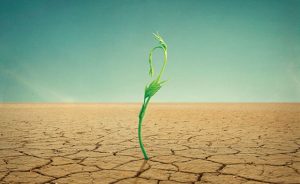 When the shofar sounds after Yom Kippur—we will be in the Shemittah Year or the Jubilee. Our Torah recognizes the need for rest: after seven days, people and animals, and after seven years the land. As soon as the Jews settled in the Holy Land, they began to count and observe seven-year cycles. Every cycle culminated in a Sabbatical year, known as Shemittah, literally: “to release.” After seven, seven-year cycles, the Shemittah year was declared the Jubilee (liberty) when G-d wants the return of every man to his possession and all debts be forgiven.
When the shofar sounds after Yom Kippur—we will be in the Shemittah Year or the Jubilee. Our Torah recognizes the need for rest: after seven days, people and animals, and after seven years the land. As soon as the Jews settled in the Holy Land, they began to count and observe seven-year cycles. Every cycle culminated in a Sabbatical year, known as Shemittah, literally: “to release.” After seven, seven-year cycles, the Shemittah year was declared the Jubilee (liberty) when G-d wants the return of every man to his possession and all debts be forgiven.
The Jubilee year is currently not observed since it is only to be commemorated when all twelve tribes of the Jewish nation are living in Israel. But are there any “take-aways” from this tradition?
It is generally accepted that rest from labor is an absolute necessity both for animal and vegetable life and that continuous cultivation will eventually ruin the land. In the early 20th century, extensive deep plowing of the virgin topsoil of the Great Plains displaced the native, deep-rooted grasses that normally trapped soil and moisture even during periods of drought and high winds. So, when a series of droughts and wind conditions occurred, the land literally blew away in millions of tons of dust. These dust storms led to the displacement and severe poverty of over half a million people and ruined the land for years.
Today, California is in the midst of one of the most serious droughts in modern times. But it’s more than just Californians who are feeling the impact; the state uses its scarce water to provide our nation with more food than any other state. While there may not be an immediate danger of water supply interruptions here in Orange County, our reservoirs are drying up and we just don’t know how long the drought will last. Efforts are being made to expand water recycling programs, and support for “toilet to tap” programs appears to be growing. Desalination plants, like the ones in Israel, once considered impractical and too expensive are being developed. (Since 2005, Israel has opened four desalination plants, with a fifth set to go online later this year. Roughly 35 percent of Israel’s drinking-quality water now comes from desalination. That number is expected to exceed 40 percent by next year and hit 70 percent in 2050.)
Several years ago at a High Holiday Seminar, keynote speaker Rabbi Arthur Green, suggested that since Rosh Hashanah is considered the “birthday of the world” perhaps reading Bereshit was a more appropriate Torah portion–since Bereshit 1.1 commands us to “guard” the land implying our responsibility over it. His reasoning was simple: we must assume the responsibility to preserve our beautiful planet, or in the not so distant future, it may become inhabitable. Now, with the drought, we are once again reminded of the fragility of our environment and how we need to be the caretakers of the earth as our Torah teaches.
Florence L. Dann, a fourth year rabbinical student at the Academy for Jewish Religion in LA has been a contributing writer to Jlife since 2004.






